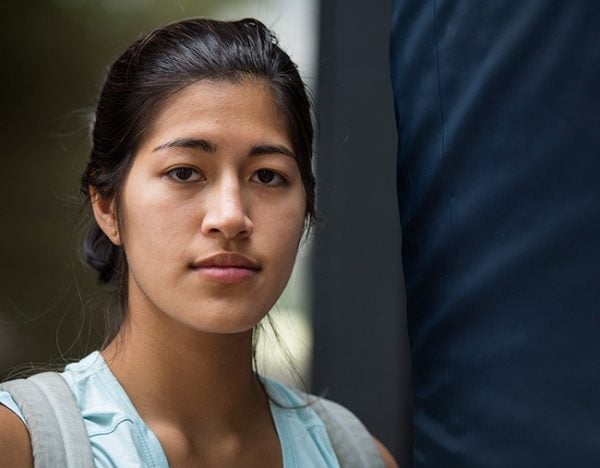“Sexual assault is almost impossible to prove. We have no idea what happened in that room that night.”
Vanessa Grigoriadis, author of Blurred Lines: Rethinking Sex, Power, and Consent on Campus, is talking to Mia Freedman’s No Filter about former Columbia University student Emma Sulkowicz, 25, and her story of sexual assault.
Though it unfolded several years ago, Sulkowicz’s experience is particularly relevant today as the #MeToo movement opens up conversations about consent.
Long before the hashtag, Sulkowicz lit a fire under the issue, paving the way for women like Ashley Judd, who was the first to publicly accuse film producer Harvey Weinstein, and ‘Emily Doe‘, who told the world how it felt to wake up and learn she’d been raped by college student Brock Turner.
Sulkowicz, too, started a conversation. This is her story.
Sulkowicz, who later became known as ‘The Mattress Girl’, was 19 years old and starting her second year at Columbia University in New York in August 2012.
She and a friend, Paul Nungesser, who lived in her co-ed college house, were at a party together.
Sulkowicz wasn’t really drinking – she’d had a sip of gin and soda – but Nungesser was making his way through a bottle of vodka. They kissed in the courtyard, the air warm around them. They’d slept together before, twice at the very beginning of their first year of college. And that night, they both wanted it to happen again.




Top Comments
Educate yourselves FFS.
http://www.konbini.com/us/i...
Every single official enquiry including those completed by the police found the evidence supported the defendants version of events.
If you followed the case, it was quite clear she only started calling it performance art as a protection against unlawful harassment suits. It was effective in that the case brought by Mr Nungesser against the University of Columbia for allowing the ongoing harassment of his character through University inaction went to a undisclosed settlement between Columbia and Mr Nungesser rather than a handed down ruling (although consensus is that his suit was going to be an uphill battle anyway).
This case is one of the key ones (the other big one being the 2014 "Rape on Campus" Rolling Stone article that was later retracted as a fabrication) that seen a reduction in women being believed from about 2014 on until the Weinstein allegations become public knowledge.
Metoo has a lot of good work that it can do as it rides the current "front of thinking" it does but it will be brought to a premature close if the blatantly marginal cases are rehashed as a cause célèbre when there are still the Harvey Weinsteins of the world to chase.